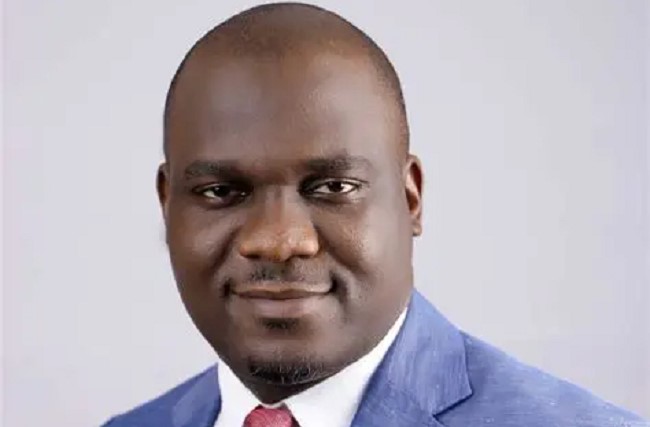The Nigerian Association of Petroleum Explorationists (NAPE) has called for deeper oil and gas exploration, innovation, and strategic investment in human capital as it marks its 50th anniversary.
Speaking during the Golden Jubilee celebration on Thursday, August 14, 2025, in Lagos, NAPE President, Mr. Johnbosco Uche, described the milestone as “a generational legacy of excellence”.

He urged the government, industry stakeholders, and young professionals to collaborate in unlocking Nigeria’s vast untapped energy resources.
NAPE was founded in August 1975 by 10 pioneering geoscientists, and has grown into Africa’s largest professional body of petroleum geoscientists and related disciplines.
Over five decades, the association has played a central role in shaping Nigeria’s oil and gas landscape.
Highlighting NAPE’s legacy, Uche noted the association’s influence in establishing the marginal field bid framework, which paved the way for indigenous operators in the industry.
He also pointed to members’ involvement in nearly every major hydrocarbon discovery in the Niger Delta.
He added that NAPE had contributed to petroleum education through its University Assistance Programme and consistently shaped industry discourse via its annual conferences.
“What began with 10 men has become a legacy that spans boardrooms, drill sites, and classrooms,” Uche said.
Looking ahead, Uche stressed the critical role of natural gas in Nigeria’s energy future, calling it a “transitional fuel” amid global energy shifts.
“With an estimated 600 trillion cubic feet of untapped gas, he emphasised the need for deliberate exploration and sustainable development.
“Gas exploration must become intentional. This is the time to go deeper and think smarter,” he said, urging the government to create attractive fiscal and regulatory incentives.
He also advocated a return to “the basics of exploration” – emphasing high-quality seismic data, digital transformation, and adoption of technologies such as AI and machine learning.
Uche highlighted the sector’s aging workforce and called for structured efforts to groom the next generation of professionals.
He proposed robust internship schemes, mentorship programmes, sabbaticals, and the establishment of new centres of excellence for petroleum studies in both northern and southern Nigeria.
“Human capital is our most precious reservoir – it must be developed intentionally,” he said.
The NAPE president pledged to enhance the association’s role in shaping national energy policy.
“Our members are not just professionals, they are nation-builders,” he said.
Uche made a rallying call for unity and forward-thinking action across the industry.
“Let the next 50 years be built on this legacy – with boldness, wisdom, and collaboration,” he said.
Also speaking at the event, Commission Chief Executive of the Nigerian Upstream Petroleum Regulatory Commission (NUPRC), Mr. Gbenga Komolafe, highlighted vast opportunities in new frontier basins.
He said this included onshore, shallow water, and deep offshore blocks, bolstered by Nigeria’s new licensing round regime.
He outlined transformative prospects in natural gas development, LNG projects, floating LNG (FLNG), and compressed natural gas (CNG) infrastructure, all aimed at boosting export capacity and enhancing domestic supply.
“Hydrocarbons still account for nearly 90 per cent of Nigeria’s foreign exchange and 70 per cent of government revenue, but the long-term sustainability of the sector lies in aligning growth with climate responsibility,” Komolafe said.
He reiterated the nation’s gas-centric transition strategy, anchored by key initiatives such as “The Decade of Gas: The Nigerian Gas Flare Commercialisation Programme (NGFCP) and The Presidential CNG Initiative”.
These programmes, he said, aim to eliminate routine gas flaring by 2030, and cut methane emissions by 60 per cent by 2031.
Komolafe stated that Nigeria’s gas reserves, currently the largest in Africa at 210.54 trillion cubic feet,provide a springboard to become a global energy hub.
He said Nigeria also holds 37.28 billion barrels of crude oil and produces approximately 1.8 million barrels of oil and eight billion standard cubic feet of gas daily.
“Our ambition is to increase production to three million barrels of oil and 12 billion cubic feet of gas per day,” he said.
Achieving this, he explained, will require sustained investment in frontier exploration, mature field development, and critical infrastructure to support a growing population and industrial needs.
Komolafe said NUPRC was implementing a robust Upstream Decarbonisation Framework and Blueprint.
He said this included emissions monitoring, carbon capture and storage, and access to climate finance through carbon markets.
“We are developing a carbon services ecosystem – comprising monitoring technologies, advisory services, and deployment tools – while ensuring environmental and asset integrity,” he said.
On a continental level, Komolafe emphasised regional collaboration through the African Petroleum Regulatory Forum (AFRIPERF), which promotes regulatory harmonisation, cross-border financing, and energy infrastructure interoperability.
He said that NUPRC was also working with the Africa Energy Bank to channel transition capital into high-impact projects across the continent.
Komolafe reported strong investor interest, with Nigeria’s rig count rising from eight in 2021 to 43 presently, with projections to hit 50 by year-end.
“This momentum signals a bold new chapter for Nigeria – one defined by resilience, ambition, and opportunity,” said.
